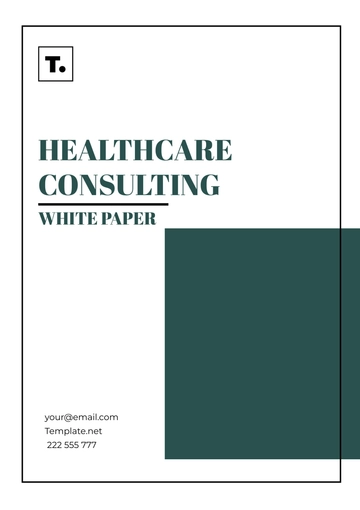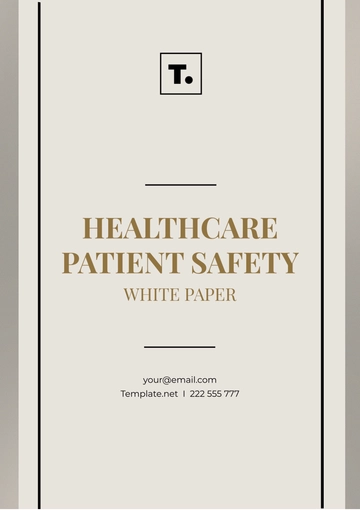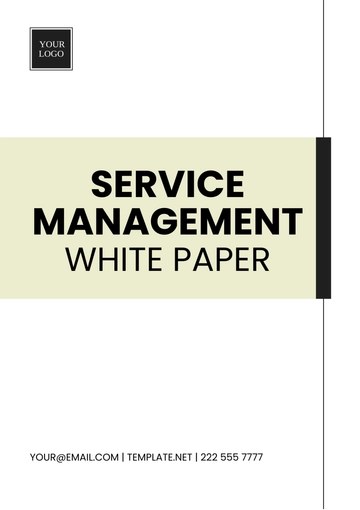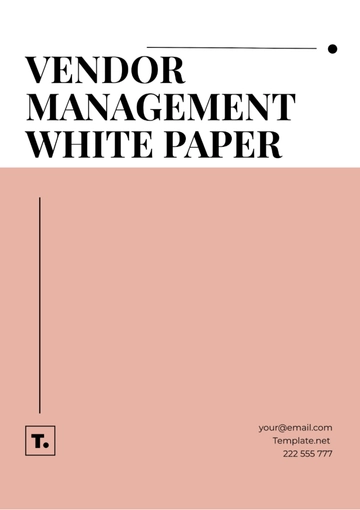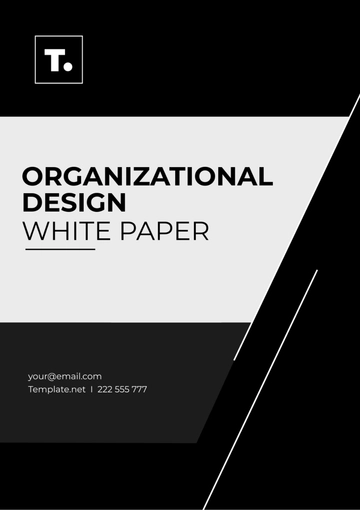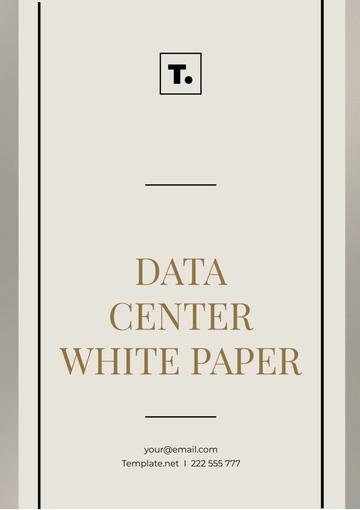Free Healthcare Consulting White Paper
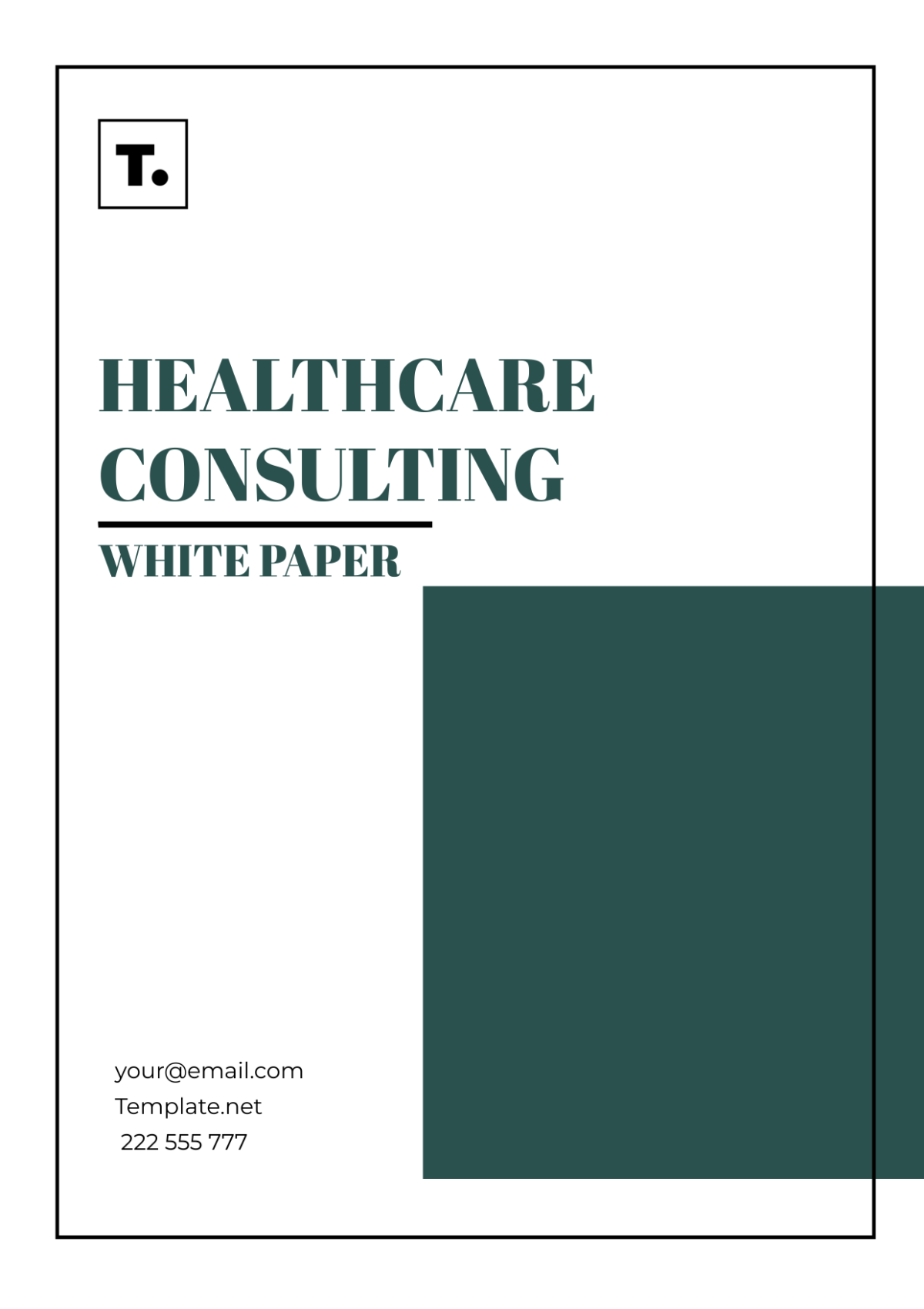
I. INTRODUCTION
In today's rapidly evolving healthcare landscape, the need for strategic consulting has never been more crucial. This white paper aims to delve into the methodologies, best practices, and case studies pertinent to healthcare consulting, shedding light on how organizations can optimize operations, enhance patient care, and elevate overall performance through strategic consulting approaches.

II. UNDERSTANDING
A. Definition of Healthcare Consulting
Healthcare consulting encompasses a range of services aimed at helping healthcare organizations navigate challenges, improve efficiency, and achieve their strategic goals. Consultants in this field offer expertise in areas such as process optimization, revenue cycle management, and quality improvement.
B. Importance of Strategic Consulting
In the realm of healthcare consulting, strategic approaches are paramount. Strategic consulting involves aligning organizational goals with actionable plans to drive sustainable growth and success. By leveraging data-driven insights and industry expertise, strategic consultants enable healthcare organizations to make informed decisions and stay ahead in a competitive market.
III. METHODOLOGIES
A. Assessing Current Operations
Data Analysis: Conduct comprehensive data analysis to identify inefficiencies and bottlenecks in current operations.
Stakeholder Engagement: Engage key stakeholders, including staff and leadership, to gain insights into operational challenges and opportunities.
Process Mapping: Utilize process mapping techniques to visualize workflows and identify areas for improvement.
B. Developing Customized Solutions
Tailored Strategies: Develop customized strategies based on the unique needs and goals of each healthcare organization.
Collaborative Approach: Foster collaboration between consultants and internal teams to ensure alignment and buy-in for proposed solutions.
Continuous Improvement: Implement iterative processes for continuous improvement, allowing for adjustments based on feedback and evolving requirements.
C. Implementing Best Practices
Benchmarking: Compare performance metrics against industry benchmarks to identify areas of excellence and areas needing improvement.
Standardization: Advocate for the adoption of standardized protocols and best practices to promote consistency and quality in care delivery.
Technology Integration: Explore opportunities for leveraging technology solutions to streamline processes and enhance efficiency.
IV. CASE STUDIES
A. Case Study 1: Greenfield Medical Center
Client Name: Greenfield Medical Center
Challenges: Greenfield Medical Center faced challenges with long patient wait times and inefficient appointment scheduling processes.
Solutions Implemented:
Implemented a centralized scheduling system to optimize appointment booking and reduce wait times.
Introduced patient flow analysis to identify bottlenecks and implement workflow improvements.
Trained staff on best practices for patient engagement and communication.
"Through strategic solutions and dedicated implementation, the hospital transformed challenges into triumphs, reshaping patient experiences with efficiency and empathy."
NOTE: This conclude as percentage base outcomes.
B. Case Study 2: Coastal Community Hospital
Client Name: Coastal Community Hospital
Challenges: Coastal Community Hospital struggled with revenue cycle management and billing inefficiencies.
Solutions Implemented:
Conducted revenue cycle assessment to identify gaps and opportunities for improvement.
Implemented electronic billing and coding systems to streamline revenue capture processes.
Provided staff training on coding accuracy and compliance standards.
"Empowering efficiency through strategic solutions: From assessing revenue cycles to implementing electronic systems and fostering staff expertise, we've not only increased revenue capture rates by 15% and slashed billing errors by 40%, but also paved the way for enhanced financial stability."
NOTE: This conclude as percentage base solutions.
V. CONCLUSION
In conclusion, strategic healthcare consulting plays a pivotal role in driving operational excellence and improving patient outcomes. By leveraging data-driven insights, customized solutions, and best practices, healthcare organizations can overcome challenges and thrive in an ever-changing environment. Embracing strategic consulting approaches is not just a competitive advantage but a necessity for success in today's healthcare landscape.
VI. ABOUT HEALTHCARE CONSULTING
ABC Healthcare Consulting is a leading provider of strategic consulting services tailored to the healthcare industry. With a team of experienced consultants and a track record of success, we empower healthcare organizations to achieve their goals and fulfill their mission of delivering high-quality care. Contact us today to learn more about how we can support your organization's success.

VII. REFERENCES
Healthcare Financial Management Association. (2019). Best Practices in Revenue Cycle Management. Retrieved from https://www.hfma.org/technology/63414/.
Institute for Healthcare Improvement. (2022). Process Improvement in Healthcare: A Guide for Practitioners. Retrieved from https://www.ihi.org/.
- 100% Customizable, free editor
- Access 1 Million+ Templates, photo’s & graphics
- Download or share as a template
- Click and replace photos, graphics, text, backgrounds
- Resize, crop, AI write & more
- Access advanced editor
Enhance and Discover the Healthcare Consulting White Paper Template by Template.net - your ultimate solution for crafting professional-grade healthcare strategies. This editable and customizable template streamlines your consulting process, ensuring seamless communication of insights. Tailor your content effortlessly with our Ai Editor Tool, empowering you to deliver impactful analyses with ease.



